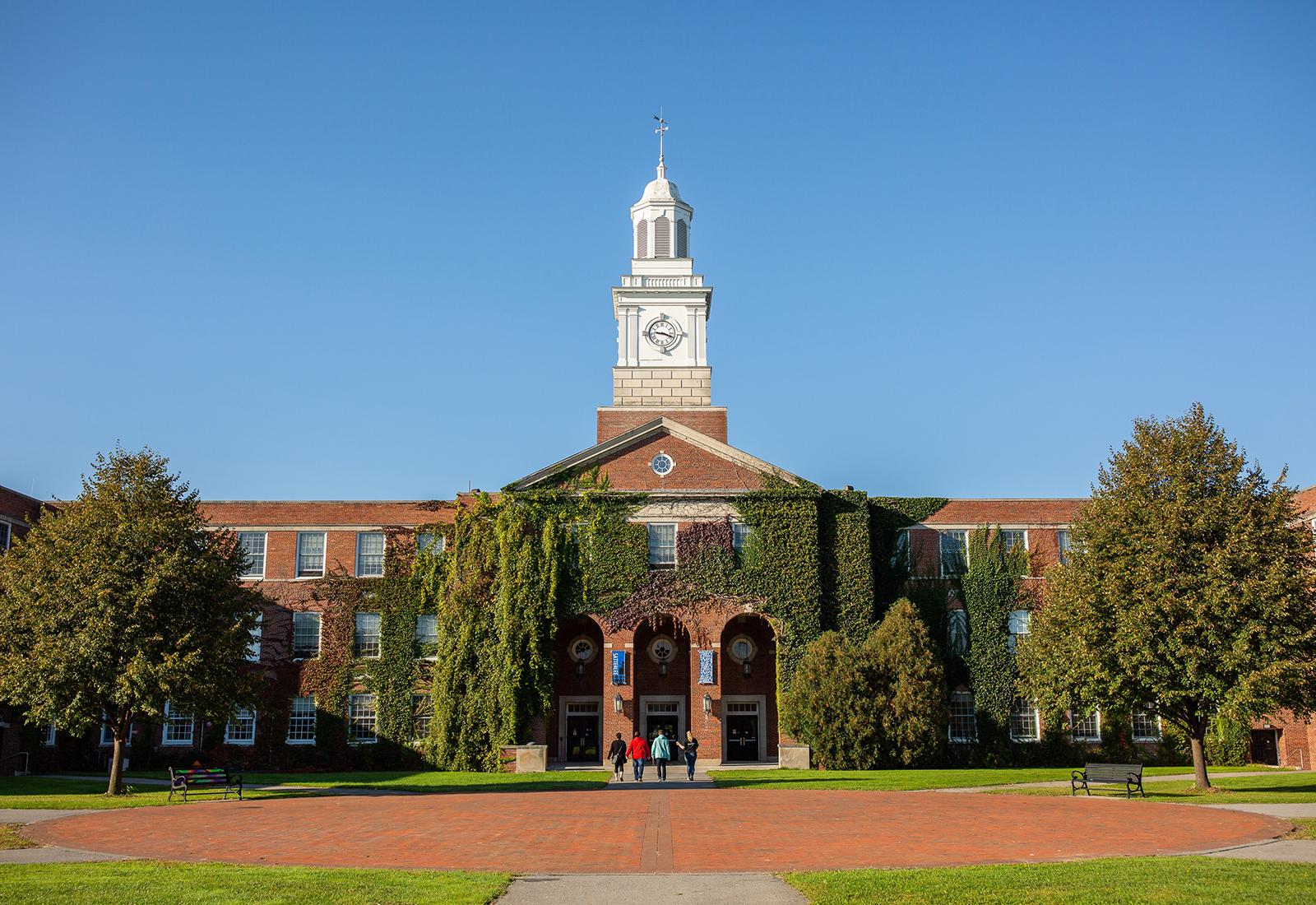Black Literature: Hughes, Cullen, Baraka, and Madhubuti

The phrase “Jazzoetry” was coined by the Past Poets, who employed it as the name of a single of their albums. The term was used to the groundbreaking model of poetry with a jazz track record that they experienced popularized for the duration of their 70s heyday. When the time period may possibly not have used so considerably to the created term, especially that before it, there ended up black poets who wrote with an afrocentric stream and fervor that was inspiration and insightful.
Amiri Baraka is a single this kind of poet and is considered the founding father of the Black Arts Movement. He was born Everett LeRoi Jones, in Newark, New Jersey, October 7, 1934.
Baraka (continue to composing underneath his presented name of LeRoi Jones) located achievements early, profitable the Obie In 1964 for his racially-charged enjoy, “The Dutchman,” which concentrated on the brief, but unstable rapport among a youthful black gentleman and a blonde temptress. He later on opened a faculty that emphasized blackness in an artistic, musical, poetic and spectacular context.
He later divorced his (white) spouse and adopted a a lot more nationalist standpoint and changed his name to Imamu Amiri Baraka. He remarried, to Sylvia Robinson, who adopted the title Amina Baraka.
In 1961 Baraka experienced his work, “Preface to a Twenty Quantity Suicide Be aware” released. Two several years afterwards arrived, “Blues Persons.” But his true notoriety arrived when his poetry took on a stance identical to that of the Black Muslim Motion and took on what many labeled an “Anti-Semitic” tenor. Due to the fact then he has revealed 17 other guides, together with “4 Black Revolutionary Plays” (1969), “Elevate Race Rays Raize: Essays Because 1965, 1971,” “The Autobiography of LeRoi Jones/Amiri Baraka” (1984), and “Any person Blew Up The united states” (2001).
In 2002 Baraka was named Poet Laureate of New Jersey. One of his detractors is negro lickspittle and anti-affirmative Action crusader,. Ward Connerly. He described Baraka as, “1 of America’s leading haters and anti-Semites,” in reference to the poem, “Anyone Blew Up America.” That distinct work accused Israel of possessing prior know-how of the 911 assaults and did nothing to inform People. Due to the fact of the ensuing controversy, Baraka resigned his put up in 2003.
Connerly elaborated: “the New Jersey Council for the Humanities and the New Jersey State Council on the Arts formed a panel that appointed this “artist” as poet laureate. That’s suitable. They appointed him to this prestigious compensated position ($10,000 for a two-yr expression, no fewer) in spite of the fact that he had posted dozens of anti-Jewish, anti-white, pro-Black Panther screeds all through the past 25 yrs…Did they actually imagine his despise-infused, Jew-bashing, hip-hop-like lyrics have been actually poetic?…Now I’m starting off to ponder if there aren’t more Amiri Barakas out there, dishing out filth and despise below the guise of a poet laureate of a different state. It would not harm any of us to examine this out.”
Technically diverse, Countee Cullen was born in Louisville, Kentucky, March 30, 1903, (however for most of his lifetime he claimed New York Town as his birthplace. Alongside with Richard Wright, Langston Hughes, Phillis Wheatley and Paul Laurence Dunbar. Between many others, Cullen was a single of the stars of the Harlem Renaissance. For the duration of this time He posted many textbooks of poetry, “Color” (1925), “Copper Sun” (1927) and “The Ballad of the Brown Girl” (1927)..
Even though his themes were black, several believed he “wrote white.” Cullen experimented with sonnets, quatrains, and other poetic types and was influenced by John Keats. However, his do the job generally dealt with racial problems.”
One particular such poem is “Simon the Cyrenian Speaks”:
He in no way spoke a term to me / And but He referred to as my title /
He by no means gave a indicator to me / And yet I knew and arrived.
At to start with I said, “I will not bear / His cross upon my again /
He only seeks to spot it there / Since my skin is black.
But He was dying for a dream / And He was quite meek,
And in His eyes there shone a gleam / Males journey considerably to search for.
It was Himself my pity bought / I did for Christ alone
What all of Rome could not have wrought / With bruise of lash or stone.
There is a symmetry and flow to his words. It is straightforward nonetheless effective in its expression of struggling. Cullen died in 1946, falling target to large blood strain.
Haki R. Madhubuti is a poet who has risen to literary prominence in the Black Arts Motion. He received his to start with successes writing poetry during the 60’s and early 70’s creating less than his provided identify, Don L. Lee (He altered his name in 1973). He is also an essayist and is founder of and editor at Third Environment Press, the oldest Black publishing corporation in the Unites States. He is also a pointed out lecturer and educator, serving as the director of the Learn of Fantastic Arts in Resourceful Producing System at Chicago Point out College.
Madhubuti was born in Very little Rock, Arkansas February 23, 1942, but was elevated in Detroit. He commenced his literary career in 1967 with the publication of a selection of essays titled, “Imagine Black.” Some of his other poetic choices contain the collections, “We Stroll the Way of the World,” and “Do not Cry, Scream.” He has released 18 other textbooks which include, “Black Adult males: Out of date, Single, Hazardous,” “The African American Spouse and children in Transition,” and “Saying Earth: Race, Rage, Rape, Redemption.”
His standpoint is decidedly pro-black, in search of to raise concerns for discussion and dissemination. A single of his aware-elevating performs is “Transform Up,” which says:
alter-up/
adjust-up,/
let’s go for ourselves/
the two cheeks are damaged now./
change-up,/
go earlier the corner bar,/
permit yr/break up lift u earlier mentioned that swift substantial./
improve-up…/
He again usually takes a issue-blank technique in “My Brothers, My Brothers”:
my brothers/
my brothers i will not inform you/
who to really like or not appreciate/
i will only say to you/
that/
Black women have not been/
loved sufficient./
i will say to you/
that/
we are at war & that/
Black gentlemen in the united states are/
remaining eradicated from the/
earth/
Madhubuti states, “We are only geared up to endure, but survival is not enough. We go to malls and stores to invest in solutions from men and women who do not even like us…We are acquiring stuff and we worship possession. But initial we ought to acquire possession of ourselves–when you will not know yourself, you have no possession of on your own. If all Black children have been made aware of their tradition and record over and above the context of slavery, they would increase above the confined frustrations of other individuals and by themselves.”
James Mercer Langston Hughes was born February 1, 1902 in Joplin, Missouri. He died May well 22, 1967 of cancer. Throughout that 65-12 months span he established a wide entire body of function that involves much more than 25 textbooks (16 have been poetry publications), twenty plays, quite a few autobiographical operates and radio and tv scripts. Some of his most noteworthy is effective are “The Huge Sea,” “I Surprise As I Wander,” “Shakespeare In Harlem” and “The Very best of Easy.”
At age 17 he went to Mexico for a 12 months, and even with currently being with his father located it not to his liking. He also served a hitch in the military and traveled the planet, like quite a few visits to Russia and to Africa. The latter influenced his crafting, in particular in the poem, “The Negro Speaks of Rivers.”
Langston started writing poetry in the eighth quality. Years later and against his father’s needs, he dropped out of Columbia University. Shortly thereafter his first poem (“The Negro Speaks of Rivers”) was revealed. Known primarily as a poet, Hughes attained difference by penning performs, essays and novels as effectively. He designed a sequence of books on a dim-witted character he named, Jess B. Simple.
But his most properly-known work is the poem, “A Desire Deferred”:
What transpires to a aspiration deferred?/
Does it dry up / like a raisin in the sunlight?
Or fester like a sore– / And then operate? /
Does it stink like rotten meat? / Or crust and sugar more than–
like a syrupy sweet? /
Possibly it just sags / like a weighty load./
Or does it explode?
Hughes asserted, “We young Negro artists now intend to convey our specific darkish-skinned selves without dread or disgrace. If white individuals are delighted we are glad. If they aren’t, it isn’t going to matter. We know we are lovely. And unpleasant as well… If colored folks are pleased we are glad. If they are not, their displeasure will not make a difference both. We make our temples for tomorrow, as robust as we know how and we stand on the leading of the mountain, absolutely free within ourselves.”
Hughes heyday was in the 20’s. Just after a excursion to Africa in 1923, he returned and flourished through the Harlem Renaissance. He took a work operating below Carter G. Woodson, editor of the Journal of, but returned to Harlem in 1926. He also returned to college (College of Pennsylvania), earning his B.A. degree 3 yrs later.
The affect of these 4 adult males is alive and perfectly, their is effective srving as an impetus for present-day new cadre of black poets.
Paul P. Reuben, “Amiri Baraka / LeRoi Jones,” Views in American Literature, chapter 10
Ward Connerly, “Amiri Baraka Hits a New Very low,” The Washington Occasions, Oct 11, 2002
Amiri Baraka profile, Wikipedia
Biography of Langston Hughes, Wikipedia
Andrew P. Jackson (Sekou Molefi Baako), “Langston Hughes” No further details offered




